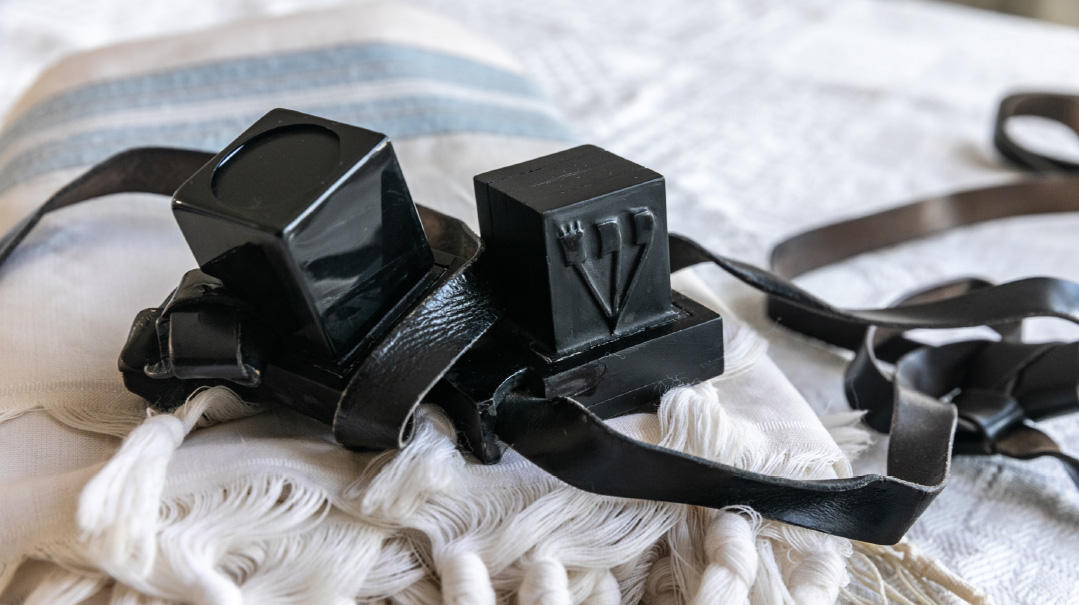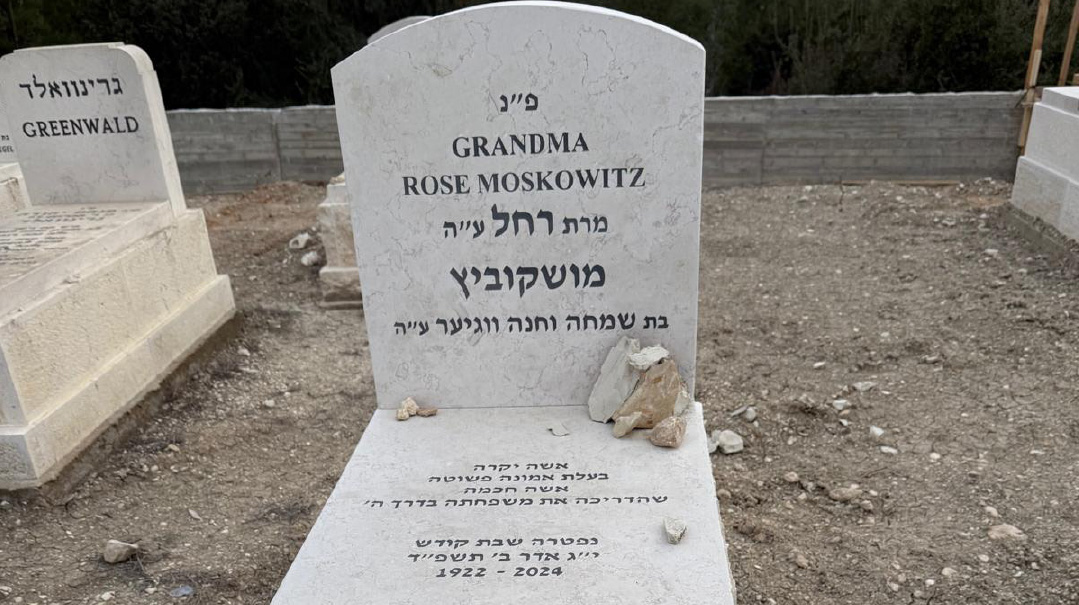Power in Numbers

I’ve been in the tzedakah “business” long enough to know Hashem has got me covered.

As told to Rivky Neuhaus
When you’re in my line of work, you see amazing things every day. After a while, you kind of expect it. What is my line of work, you ask?
During the day I’m a melamed in a chassidishe cheder in Monsey. But in my alternate existence, I run a tzedakah fund. My team and I collect and distribute between $100,000 and $150,000 a year. My “team” consists of three hardworking people — me, myself, and I. And I try to give each person on my team the proper acknowledgment.
As I was saying, I get to see amazing examples of Hashgachah; each one like a wink from Hashem telling me I’m doing good things. For instance, sometimes I’ll be short on funds and a great, pressing need suddenly comes up and I have no idea how I’m going to get the money. Then, at the last moment, it will come to me, from the most unlikely place. It’s an incredible feeling when that happens.
I also see other unbelievable things. For example, there’s the gvir who lives in a 15-bedroom mansion but has no money for basic food. I’m not talking about sushi and steak; I’m talking bread and milk. He lives in bushah, feeling like a fraud. But he has a family to support, and I try to help him out.
A woman I know used to hand the grocery store manager an extra $500 once a month for families who couldn’t pay their bill. Now, her husband lost all his money. She still shops in the same grocery store but now she has a huge bill. Finally, the manager had no choice but to tell her she can’t shop there anymore until she pays her bill. She had to leave the store in shame. Afterward the grocer felt so bad, and approached me for help, which we provided.
Then there’s the simple accountant who lives in a small run-down house, drives a jalopy, and secretly hands me $1,000 at a pop for the tzedakah fund and tells me to keep quiet about it.
But most of the time I see ordinary people who’ve fallen on hard times, who can’t pay the tuition or their kids’ therapy bills. It could be the guy who davens next to you in shul, or your next-door neighbor. You never really know what’s going on in another person’s home.
And that’s what happened to a tayere Yid, who I’ll call Yankel Schwartz.
Yankel used to work in a travel agency, but now that’s not such a hot place to work, as most people today just make their own reservations. So after a while, the travel agency goes under and Yankel is out of a job. He has a house full of kids, kein ayin hara, and we can’t let him starve. We help him out a little until he is able to find another job. But then one day last year, I heard through the grapevine that Yankel is oif gehakte tzuris. He’s completely maxed out. The electric company sent him a notice that they’re cutting off his power in one week if the amount due is not paid.
I don’t know if that ever happened to you but, trust me, it’s not fun. Nowadays no one can live like a mensch without electricity. I thought about all those kinderlach and Yankel’s hardworking wife and I knew I had to step in. The only problem was that the tzedakah fund was very low. As in, exactly zero dollars in there. I racked my brain trying to think of anyone I could ask for money. It was a shvere matzav… There’s a limit to how many times I can tcheper the same people, and I had just asked all my regular contacts to help marry off a chassan from a dysfunctional family, nebach.
At midnight before the ominous shut-off date, I remembered the Schwartzes and I knew I couldn’t push it off anymore. I called O&R Utilities and punched in the Schwartzes account number on the automated system. A tinny voice let me know the account was overdue and required an immediate payment of $735.12.
Making a split-second decision, I pulled out my personal credit card and made the payment.
I’m not a rich guy… very far from it. I don’t have an extra $700 under the mattress. But I couldn’t let the Shwartzes lose their power. I’d just have to trust that Hashem would repay the money before my own credit card bill was due. It’s not the first time I’ve laid out my own money for the keren, but finances were kind of tight just then. I pushed the worries away. I’ve been in the tzedakah “business” long enough to know Hashem has got me covered.
The next morning, I was busy teaching my class. It was a hot June day and the boys were bouncing around in their seats like ping-pong balls. They made it clear they didn’t want to be sitting in a stuffy classroom. Personally, I felt the same way, but what could I do? I bribed them with extra recess if we could get through one more pasuk. Finally, the kids are dismissed and they shot out of the room like corks from champagne bottles. I sank into my chair and pulled out my phone. I had two missed calls and a text from Mrs. Kahn.
Mr. and Mrs. Kahn are very fine people. For the last few years, Shulem Kahn always gave generously when I asked him for a donation. But the last time I came to him he seemed out of sorts and I chapped that he was going through a rough patch. I didn’t want to make him uncomfortable, so I told him, “Shulem, you’ve been so generous every time I asked you to help. If you can’t give anything now, don’t worry about it. The Ribbono shel Olam should give you parnassah b’revach and when you’re able to give, just keep us in mind.”
Shulem looked so grateful and I knew I’d said the right thing. I hadn’t heard from Shulem in half a year, but now his wife had just called me twice and texted me once.
I opened the text: Rabbi Gross, pls call me asap. My daughter wants to give a donation to your fund. Tnx.
That sounded intriguing. I called her right back and she sounded relieved to hear my voice.
“Rabbi Gross,” she said, “my daughter is taking her Math Regent today. She has to be in school in one hour and she’s very nervous. She’s been studying for weeks but she’s convinced she’s going to fail! She came up with this idea that she wants to donate her own money to your tzedakah as a zechus for her to do well.”
Regents exams are serious business. Not that I ever took any myself, and I’m doing just fine. For those of you who don’t live in New York (is there anyone like that?), the Regents are state exams done in high school. The kids prepare all year for these tests… it’s not pashut. So I can understand a bit about the panic the Kahn girl is in.
I was thinking, Nu, how much does she want to give? Chai? How much money do young girls have? “How much does your daughter want to donate?” I asked.
“Well,” said Mrs. Kahn, “since it’s the Math Regent, she wants to give the gematria of ‘math’ in Hebrew, matematika. It comes out to $604.”
I sat up in my seat. “Did you just say she wants to give $604?”
“That’s correct.”
“Mrs. Kahn… this is so bashert! You won’t believe this, but just last night I laid out money for a family about to have their electricity cut off. The bill was $735. I had no idea how I would cover it. Your daughter’s donation will take care of most of it! Tizki l’mitzvos!”
“Oh, wow!” she said, and I heard her relay the information to her daughter. Then she came back on the line. “You know what? In that case, I’d like to donate the balance. We’ll give you the full $735. We want the entire mitzvah.”
“Mamash gevaldig! What a huge mitzvah!” I was on my feet and shouting. I couldn’t stop smiling. I took Mrs. Kahn’s credit card number and, before hanging up, I rained brachos down on her and her daughter. I asked her to put the daughter on the phone and told her that in the zechus of this tzedakah, she should be matzliach on her test.
Talk about Hashgachah pratis. It took less than 12 hours for the money I laid out to be back in my account. Once again, Hashem came through for me in the clearest way. But, the emes is that no matter how many times I’ve witnessed things like this, it still amazes me every time.
A few days later, I got a call from Mrs. Kahn telling me her daughter passed with flying colors. But I’m sure you knew that already.
“That’s great news!” I said. “And please, tell your daughter she should feel free to call me before her History Regent, her Science Regent, her English Regent...”
(Originally featured in Mishpacha, Issue 725)
Oops! We could not locate your form.






